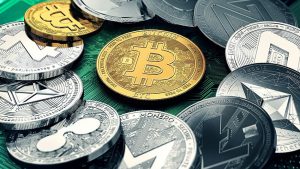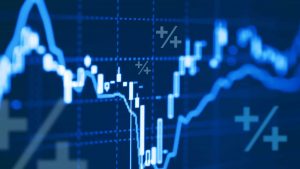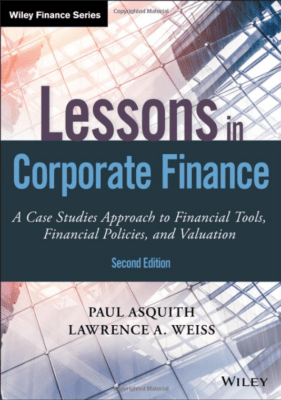Содержание

For all of these services, investors usually pay higher commissions for their trades. Brokers also get compensation based on the number of new accounts they bring in and their clients’ trading volume. Brokers also charge fees for investment products as well as managed investment accounts. Some brokers cater to high-net-worth clients with assets of $1 million or more.

Although there are various types of brokers, they can be broken down into two categories. When an entity is willing to buy or sell shares at any time, it adds a lot of risk to that institution’s operations. For example, a market maker could buy your shares of common stock in XYZ just before XYZ’s stock price begins to fall. The market maker could fail to find a willing buyer, and, therefore, they would take a loss.
Dictionary Entries Near market maker
The specialist must also set the opening price for the stock each morning, which can differ from the previous day’s closing price based on after-hours news and events. The specialist determines the correct market price based on supply and demand. Each market maker displays buy and sell quotations for a guaranteed number of shares.
These include white papers, government data, original reporting, and interviews with industry experts. We also reference original research from other reputable https://forexbitcoin.info/ publishers where appropriate. You can learn more about the standards we follow in producing accurate, unbiased content in oureditorial policy.
Market makers are trading against market volatility and informed traders. This financial institution manages over $30 billion in assets and is responsible for over 28% of US retail equity trading volume. In 2020, it was one of the few market makers that multiplied its revenue despite the crisis. Due to an increase in volatility and retail trading, the company doubled its profit, earning $4 billion. 89.1% of retail investor accounts lose money when trading CFDs with this provider. With each trade, the price of the pooled ETH will gradually recover until it matches the standard market rate.

In the morning, there’s a lot of buzz around what new things Apple might unveil. Market makers usually also provide liquidity to the firm’s clients, for which they earn a commission. At one price and sell them for another price , slightly higher than what they paid. Investors often use market makers and Electronic Communications Networks synonymously. This is mainly because of the similarities that both these entities appear to share. However, they both are completely different in terms of who they are and how they function.
Find Similar Words
Brokerage houses are the most common types of market makers, providing purchase and sale solutions for investors. Market makers will have a certain amount of the asset that they deal in. By displaying a buy and sell quote and executing trades at those prices rapidly, market makers can create a straightforward way to place trades. As the name suggests, market makers make the price and contribute volume to an exchange’s order book.
Learn more about Consensus 2023, CoinDesk’s longest-running and most influential event that brings together all sides of crypto, blockchain and Web3. Head to consensus.coindesk.com to register and buy your pass now. In addition to this, AMMs issue governance tokens to LPs as well as traders. As its name implies, a governance token allows the holder to have voting rights on issues relating to the governance and development of the AMM protocol. Andrey Sergeenkov is a freelance writer whose work has appeared in many cryptocurrency publications, including CoinDesk, Coinmarketcap, Cointelegraph and Hackermoon.
When a market maker receives a buy order, it will immediately sell shares from its inventory at its quoted price to fulfill the order. If it receives a sell order, it buys shares at its quoted price and adds them to its inventory. moneyball: the art of winning an unfair game It will take either side of a trade, even if it doesn’t have the other side lined up right away to complete the transaction. Whenever an investment is bought or sold, there must be someone on the other end of the transaction.
What is an automated market maker (AMM)?
Though the bid-ask spread that becomes her profit is low, i.e., $0.5, she closes and manages a significant earning against a single deal with $50 for selling those 100 shares. These entities take the responsibility to keep the market active and balanced. The market-making individuals make the market, and their absence might break or lead to the market’s collapse. Thus, they play a significant role in increasing the efficiency of the financial marketplace. Without market makers, far fewer trades would happen, and companies would have more limited access to capital. Other participants in the market have the option of lifting the offer from the market maker at their ask price, i.e., $5.50.
This type of market maker arranges the retail order flow and services customer orders coming from retail broker companies. There are no revolutionary features for Apple’s mainstay products and traders lose interest in the story. Now there’s a rush to sell Apple shares, with few people willing to buy.

Financial markets need to operate smoothly because investors and traders prefer to buy and sell easily. Without market makers, it’s unlikely that the market could sustain its current trading volume. This would reduce the amount of money available to companies, and in turn, their value.
Market makers earn money on the bid-ask spread because they transact so much volume. So, if a market maker is buying shares on average for a few pennies less than it sells them for, with enough volume it generates a significant amount of income. Market makers usually carry an inventory of any securities they make a market in. Additionally, they’re constantly offering quotes on prices they’re willing to pay to buy more shares and the price they’re willing to sell their shares for .
In other words, if your deposit represents 1% of the liquidity locked in a pool, you will receive an LP token which represents 1% of the accrued transaction fees of that pool. When a liquidity provider wishes to exit from a pool, they redeem their LP token and receive their share of transaction fees. A prediction market, or market explicitly designed to uncover the value of an asset, relies heavily on continual price discovery holding true. Financial InstitutionsFinancial institutions refer to those organizations which provide business services and products related to financial or monetary transactions to their clients. Some of these are banks, NBFCs, investment companies, brokerage firms, insurance companies and trust corporations. The market maker will offer up-to-date prices at which they’re willing to buy or sell and the amounts of the security it’s willing to buy or sell at those prices.
These entities create multiple bid-ask orders to match the orders of retail traders. With this, the exchange can ensure that counterparties are always available for all trades. In this system, the liquidity providers take up the role of market makers. In other words, market makers facilitate the processes required to provide liquidity for trading pairs. Today, there’s hundreds—if not thousands—of market makers, both human and digital, providing services to various stock exchanges.
In times of volatility, the relatively stable demand of market makers keeps the buying-and-selling process moving. Market makers are high-volume traders that “make a market” for securities by always standing at the ready to buy or sell. They profit on the bid-ask spread and they benefit the market by adding liquidity. The difference of $0.50 in the ask and bid prices of stock alpha seems like a small spread. However, small spreads, as such, can add up to large profits on a daily basis, owing to large volumes of trade.
What Is a Market Maker?
A market maker can either be a member firm of a securities exchange or be an individual market participant. Thus, they can do both – execute trades on behalf of other investors and make trades for themselves. Once referred to as specialist systems, DMMs are essentially lone market makers with a monopoly over the order flow in a particular security or securities. Because the NYSE is anauction market, bids and asks are competitively forwarded by investors.
Market makers in the crypto industry: party planners or bartenders? – Cointelegraph
Market makers in the crypto industry: party planners or bartenders?.
Posted: Tue, 21 Feb 2023 08:00:00 GMT [source]
She is the CEO of Xaris Financial Enterprises and a course facilitator for Cornell University. The offers that appear in this table are from partnerships from which Investopedia receives compensation. Investopedia does not include all offers available in the marketplace. Investopedia requires writers to use primary sources to support their work.
Anytime you invest in stocks, someone is on the other end of your trade, and it could be a market maker. Without market makers, however, trading would slow down significantly. It would take considerably longer for buyers and sellers to be matched with one another. This would reduce liquidity, making it more difficult for you to enter or exit positions and adding to the costs and risks of trading. The most common example of a market maker is a brokerage firm that provides purchase and sale-related solutions for real estate investors. It plays a huge part in maintaining liquidity in the real estate market.
- Market makers simultaneously post both a bid and ask for a stock.
- They do this by being “first in line” to buy on the bid when a seller “crosses the spread” with a market order.
- In some cases, exchanges like the NYSE use a specialist system where a specialist is the sole market maker who makes all the bids and asks that are visible to the market.
- For example, a market maker may be willing to purchase your shares of XYZ from you for $100 each—this is the bid price.
- The opposite is true, as well, because any shares the market maker can’t immediately sell will help fulfill sell orders that will come in later.
- There’s also a degree of intermediation in volatility-related products.
A number of market makers operate and compete with each other within securities exchanges to attract the business of investors through setting the most competitive bid and ask offers. In some cases, exchanges like the NYSE use a specialist system where a specialist is the sole market maker who makes all the bids and asks that are visible to the market. A specialist process is conducted to ensure that all marketable trades are executed at a fair price in a timely manner. A market maker participates in the securities market by providing trading services for investors and boosting liquidity in the market. They specifically provide bids and offers for a particular security in addition to its market size.
A market maker places orders with prices that differ from the current market price. Market takers work with the price given to them and take volume off of the order book. In the contexts of the CFDs instrument, market makers are funding banks, central banks, business banks and massive brokerage companies. When you upgrade to a live account, you’ll already be accustomed to how the market works and make sound decisions.